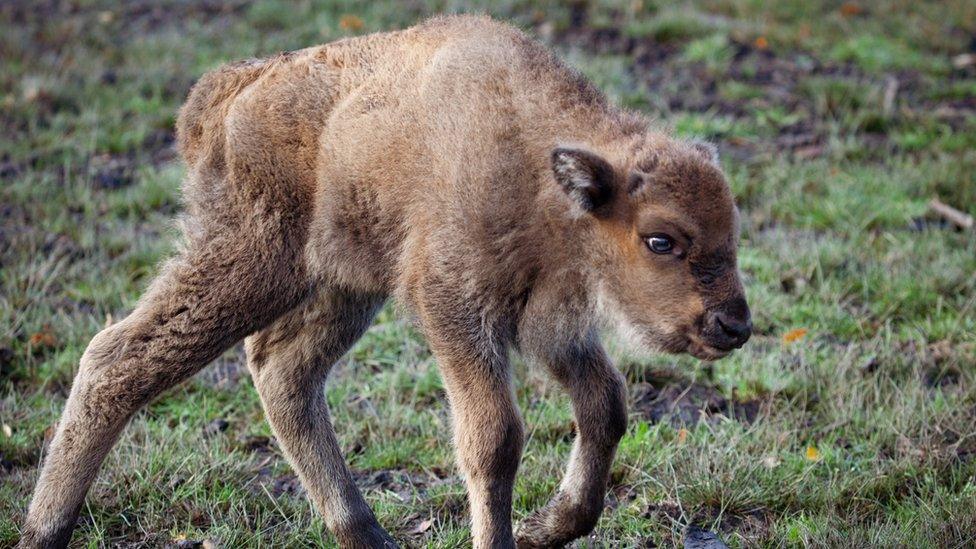Stork breeding programme has most successful year
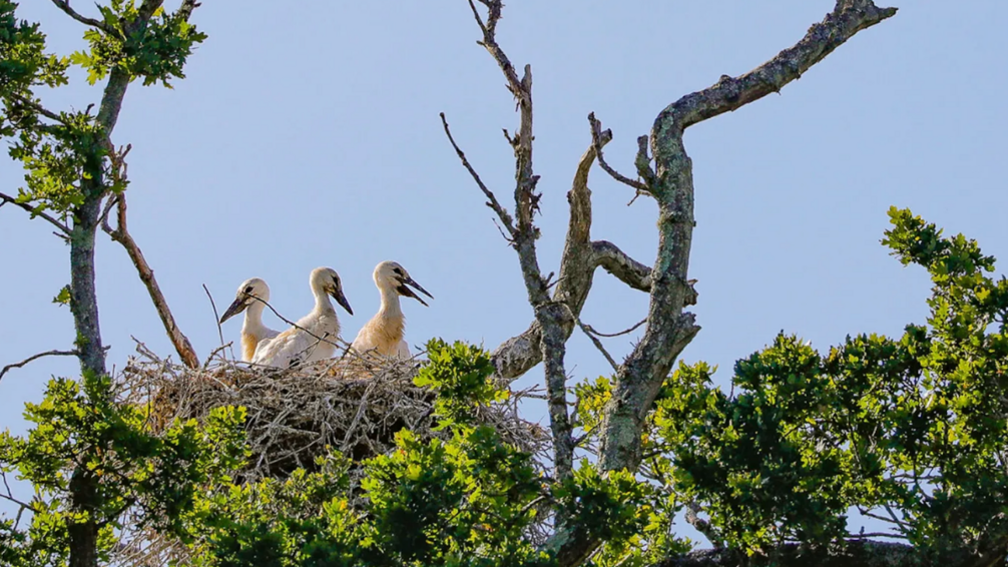
About 40 white stork fledglings are expected to leave the nests this year
- Published
A breeding programme for white storks has had its most successful year to date.
About 40 fledglings are expected to leave their nests at Knepp Castle, a rewilding project near Horsham, West Sussex.
The birds only started breeding in 2020, when just four chicks hatched, with 26 fledglings in 2023.
The colony has also seen its first members migrating between the UK and Morocco.
Laura Vaughn-Hirsch, who oversees the programme, said: "They're a wild colony, with a small number of birds who can't fly that are rehabilitated from the wild and kept in a predator-proof pen.
"Between our partner site in East Sussex we've got about 80 adult birds."
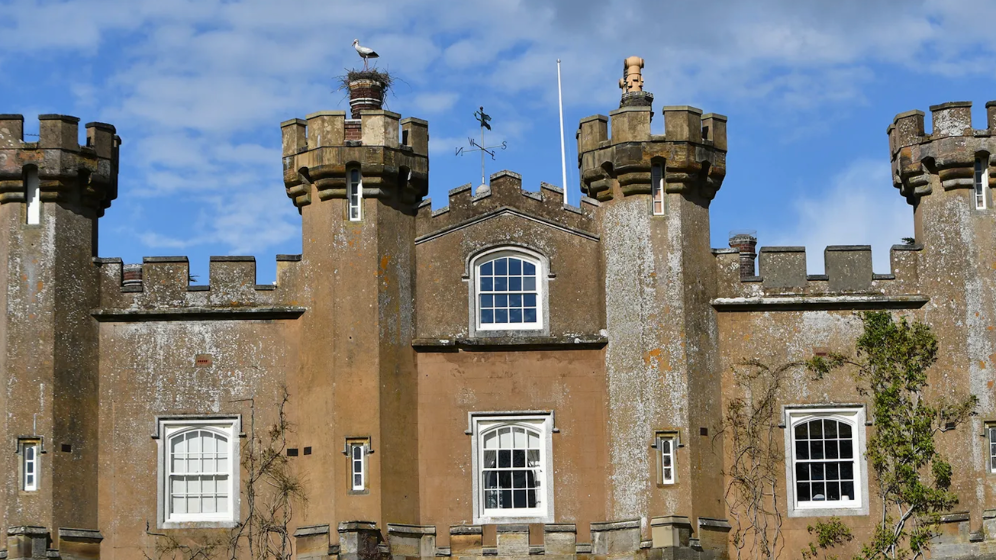
The storks have flourished at Knepp Castle
Ms Vaughn-Hirsch warned that, with some of the birds now making the dangerous annual journey between the UK and north Africa, a large population is needed.
"It sounds like a lot of birds but they are migratory and sadly you lose a lot along the way, you have a very high mortality.
"The truth is, it's going to take a long time to get this colony properly established."
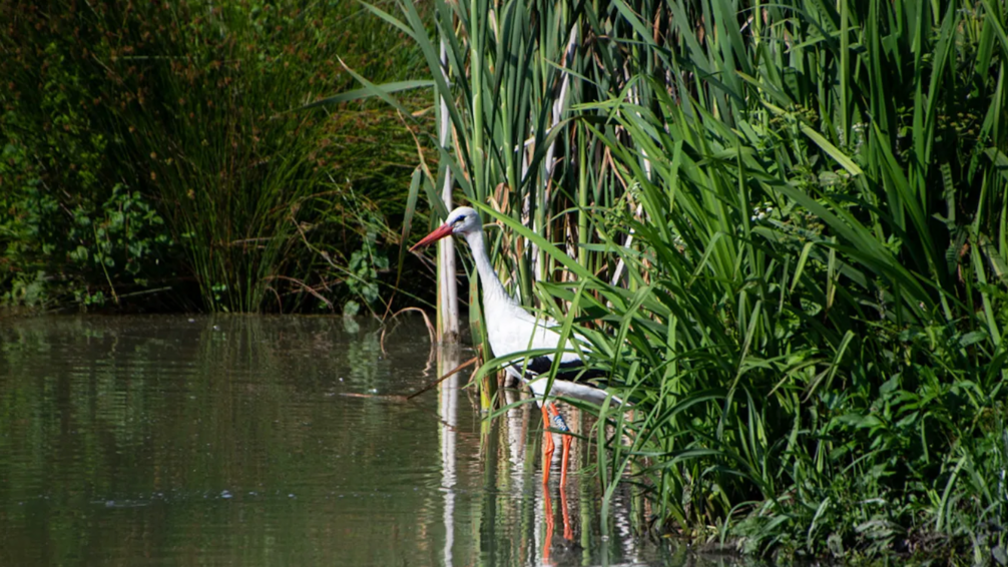
About 40 white stork fledglings are expected to leave the nests this year
Once wildly distributed across the UK, sightings stopped after 1983, according to the White Stork Project.
Habitat loss and hunting are thought to be to blame for the birds' decline.
Follow BBC Sussex on Facebook, external, on X, external, and on Instagram, external. Send your story ideas to southeasttoday@bbc.co.uk , external or WhatsApp us on 08081 002250.
- Published31 May 2024
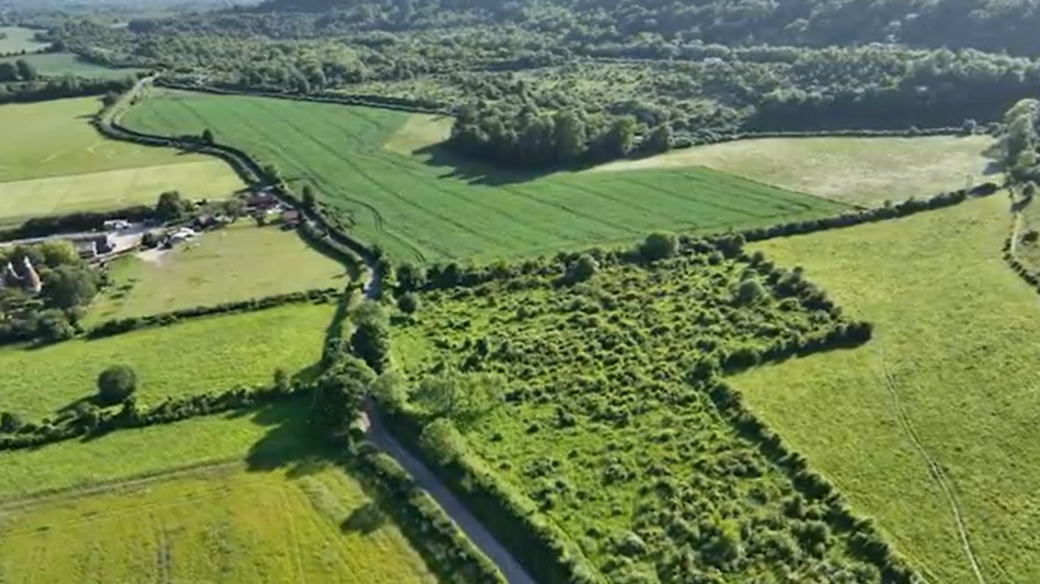
- Published5 May 2024
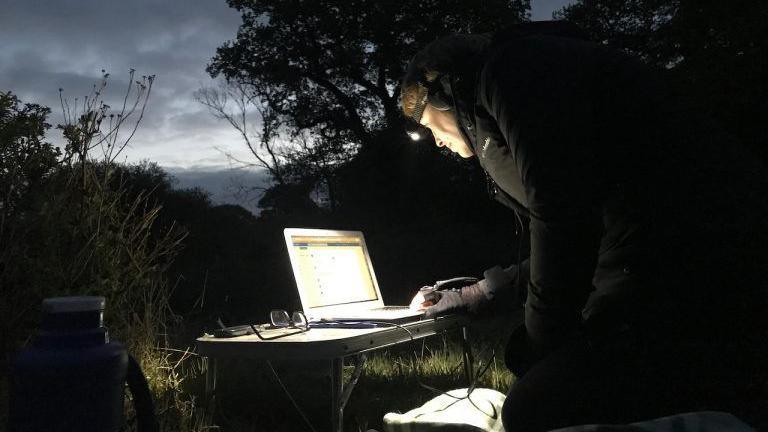
- Published11 April 2024
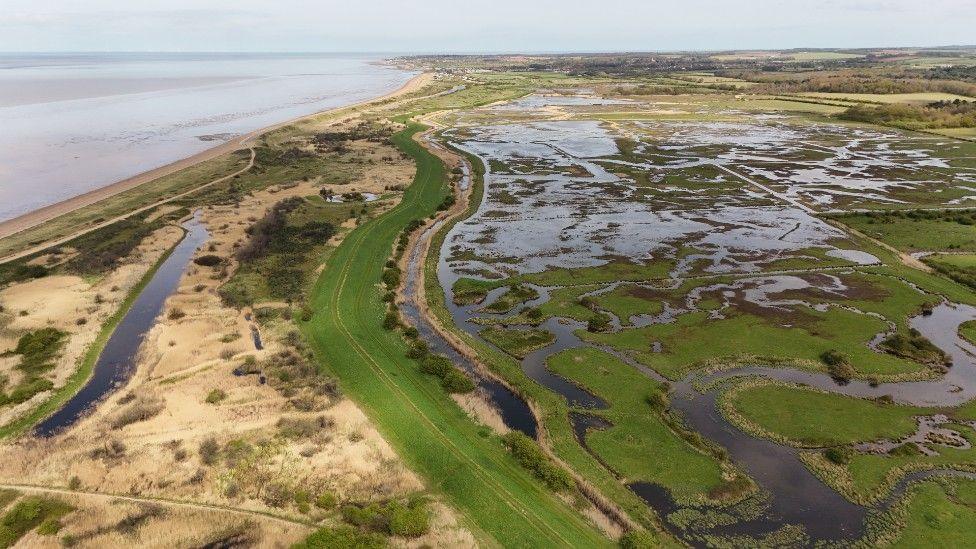
- Published1 March 2024
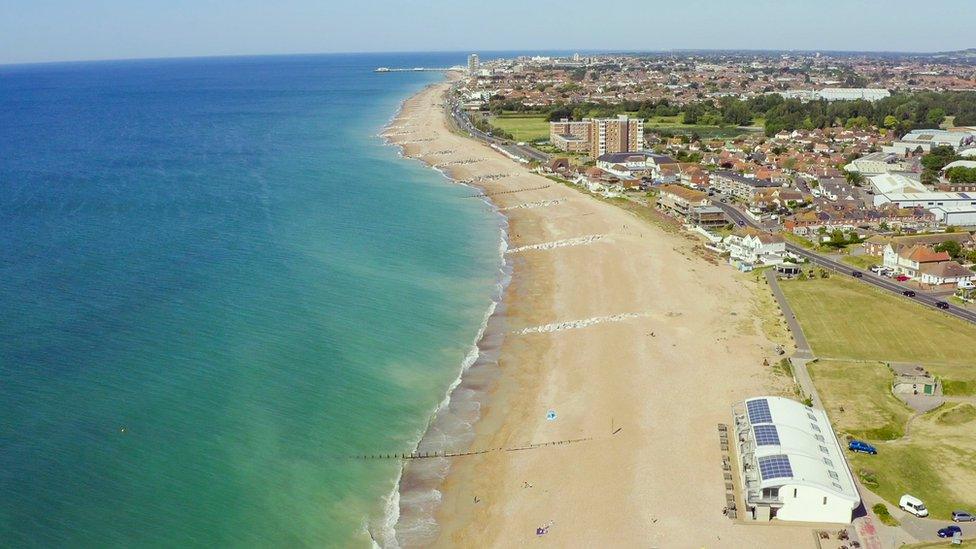
- Published25 February 2024
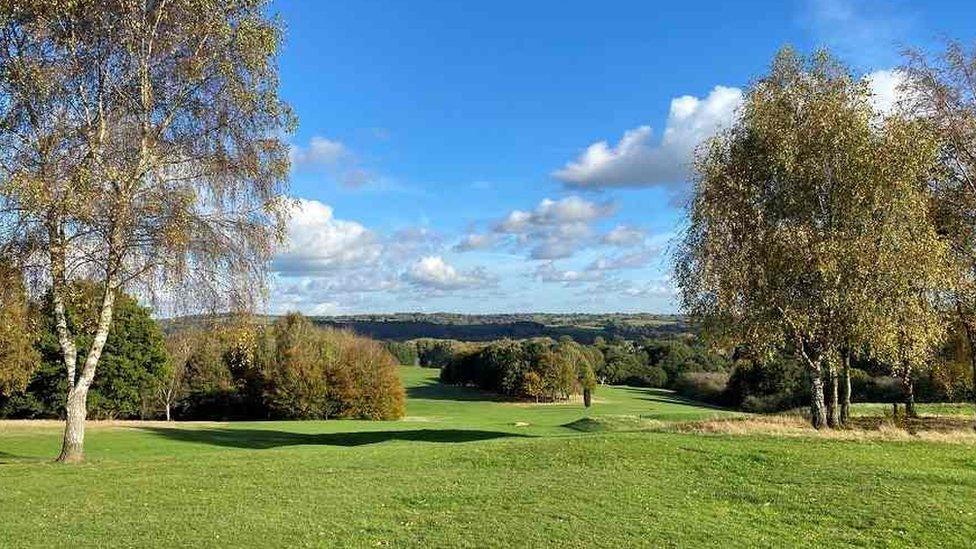
- Published21 December 2023
